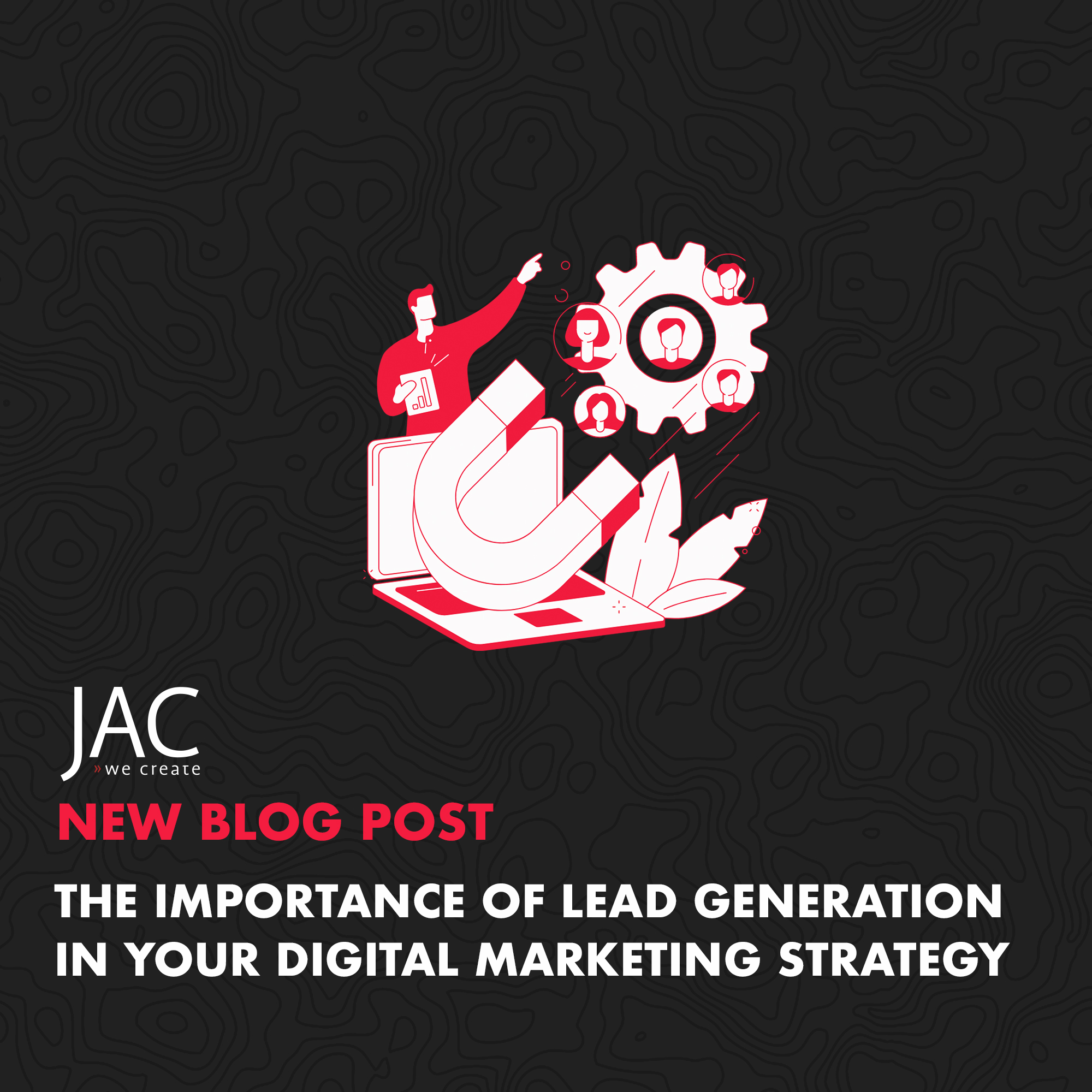The Importance of Lead Generation in your Digital Marketing Strategy
Jul 4, 2022
The ultimate goal of any business is to generate revenue. To do this, you’ll need new customers. The glut of digital marketing tools has now made it easier than ever for businesses to grow their online presence and to implement lead generation strategies that surpass traditional methods of growth.
In a digital world, it is crucial for brands to continuously adapt and leverage emerging trends to promote their business. If you’re not using your digital footprint to help generate leads for your business, you’re missing out on what is rapidly becoming one of the most successful revenue generation streams of the modern era.
At its core, lead generation aims to collect ‘leads’ for a company, which is any individual or organization that has shown interest in your product or service. With more leads, sales and marketing teams can reach out to potential customers to increase conversions.
Digital marketing strategies that focus on lead generation can provide a scalable model for brands to acquire leads through various channels, thus expanding the lead pool through a larger digital footprint.
Here’s why businesses should implement lead generation strategies in their digital marketing plan.
Decrease acquisition costs
Digital platforms are an extremely cost-effective method to acquire new leads and attract the attention of potential customers. By optimizing paid social campaigns and organic search, brands can reach the right audiences without paying as much as traditional channels like Out-of-Home (OOH) advertising.
Promoting your brand online can cost much cheaper than traditional marketing, and while a lower portion of the budget is allocated to this, it still generates a large amount of awareness and attention that your brand needs to succeed. Essentially, by focusing on lead generation in the digital marketing strategy, brands can now do more with less. Additionally, with more qualified leads, marketers do not have to rely on casting a wide net and spending exorbitant amounts of money to get a larger pool of leads.
Increase margins
By increasing lead generation efforts, businesses can lower their cost per acquisition (CPA) by leveraging social advertising and paid search. With the right marketing automation tools and teams, brands are able to nurture leads and successfully convert them into customers.
Moreover, in the digital world, brands are able to constantly be connected with their consumers in real-time. This means that they can provide better service and lower response times, thus providing superior customer service and boosting brand loyalty. Returning customers can dramatically increase margins for any company by yielding a higher ROI and generating more revenue.
Expose brand to new audience segments
The advent of lookalike audience tools also allows marketers to tap into their existing consumer base to create similar profiles and thus increases the accuracy of targeting.
In an era of digitally-led natives, the chances are that potential customers are using online tools to search for more information before purchasing products and services. Brands can utilize organic search and growth to appear in micro-moments of the customer’s journey.
For instance, if marketers find that leads from a certain target segment tend to experience higher sales conversion rates, they can retarget others in similar demographics to replicate the result. By going digital, brands also expand their outreach on a global level to include newer audiences and boost their visibility on a larger scale.
Customers are the backbone of every business. Placing lead generation at the forefront of your digital marketing strategy can get you quality leads. By harnessing the power of digital platforms, brands can maximize their profits and build better relationships with new customers, all without spending an exorbitant amount of money.
